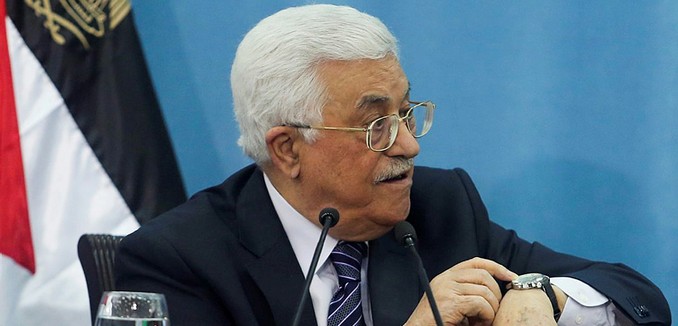The cancellation of long-awaited Palestinian elections, as well as the recent hospitalization of Palestinian Authority President Mahmoud Abbas, who does not have a clear succession plan, have caused growing concern over whether Palestinians would be prepared to run an effective independent state.
Municipal elections had been scheduled for Saturday, but will not be held for several months, if at all, after a a PA court cancelled them last month, citing “procedural problems.” In a report for the Jerusalem Center for Public Affairs, longtime Arab affairs correspondent Yoni Ben Menachem attributed the cancellation of the elections, and Abbas’ failure to name a successor, to the president’s interest in preserving his sons’ business empire.
Abbas’ refusal to establish any sort of chain of succession is only one area where the Palestinians have failed to establish the institutions needed for effective statehood.
In an analysis written last month for Newsweek, Jonathan Schanzer, vice president for research of the Foundation for Defense of Democracies, described the PA under Abbas as increasingly autocratic with little interest in establishing the institutions of government.
Political challengers are put down with brutality, press freedom has shriveled, and allegations of corruption swirl. The result is a brittle, autocratic government increasingly viewed as a tool for Abbas to wield power, rather than a state in the making.
The Gaza Strip, which is ruled by the Iran-backed terrorist organization Hamas, isn’t any better off, Schanzer wrote; Hamas rules Gaza “like a mob syndicate” which “continues to prepare for more conflict with Israel rather than dealing with the economic problems of the people it governs.”
International efforts to coerce negotiations between Israel and the Palestinians will likely be futile because they don’t “[address] these failings.” Instead, Schanzer observed, “what’s needed first is a plan to tackle the Palestinian political stagnation that has grown worse over a decade of international neglect.”
Former Israeli Defense Minister Moshe Ya’alon similarly said last month that immediate separation between Israel and the Palestinians, as some propose, won’t lead to peace or statehood for the Palestinians. “How can you separate?” Ya’alon asked during a talk at the Washington Institute for Near East Policy. “I’m not talking about infrastructure, water, electricity – security. [Abbas] can’t survive a day without our security activities. Yes we have to say they do part of the job, we do most of the job in fighting Hamas, Palestinians Islamic Jihad, [ISIS] in Judea and Samaria.”
Polls show that many Palestinians want Abbas to resign. He was elected in 2005 to a four-year term and has ruled by decree since 2009. Abbas established a new court in April to further consolidate his power.
The Times of Israel reported last week that the PA originally saw the now-cancelled municipal elections as a first step toward holding presidential elections within two years, which would legitimize the rule of Abbas (who is 81 years old) or his successor. But candidates from both parties complained that they were being harassed by authorities under control of their rivals. Veteran Palestinian affairs correspondent Khaled Abu Toameh reported in August that both the PA and Hamas were seeking to silence critics ahead of the elections. The ongoing crackdown on journalists in the West Bank and Gaza reflects the insecurity of their ruling authorities, Abu Toameh charged. “The less politically secure they feel, the more they strip Palestinian journalists of their ability to report how things really stand,” he wrote.
Grant Rumley, a research fellow at the Foundation for Defense of Democracies, warned in May that the West’s refusal to challenge the growing corruption and autocratic rule under Abbas “could have a devastating effect on the long- prospects for a viable Palestinian state.”
[Photo: Flash90 ]




